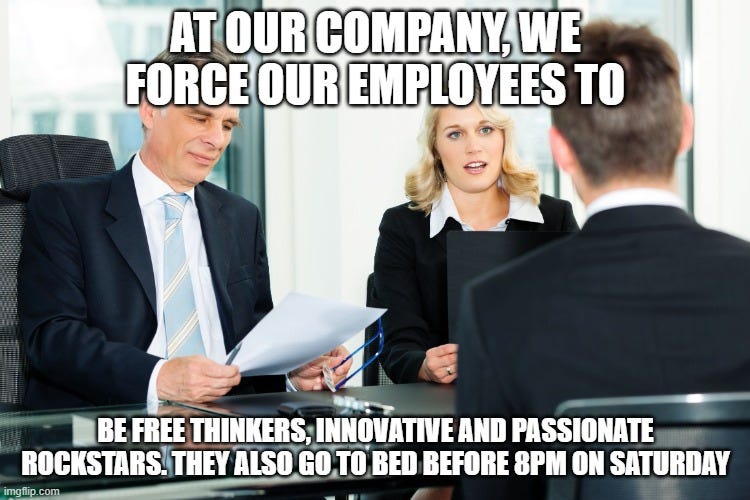Weird corporate cultures and its bad managers
Five unnecessary but common people management mistakes
Corporate cultures are just so... weird?
This way of "let's define values about how people should behave by writing them out on sticky notes" and then telling HR to hammer them into people's heads always felt artificial to me, especially while the management/leadership culture was at the same time completely dysfunctional.
It's no surprise that I keep get…



